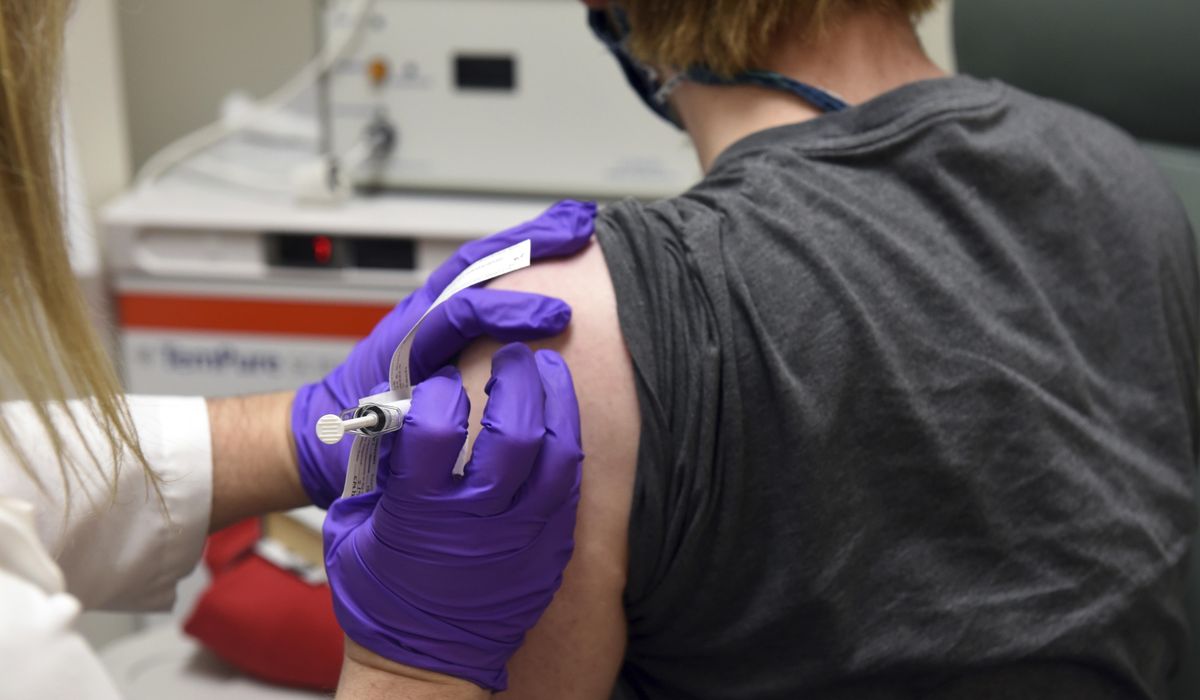President Trump told voters they were “turning the corner” on the coronavirus, but Americans are running smack into a pandemic that is as daunting as ever, posing a challenge for whoever occupies the White House after the votes are counted.
The nation has recorded more than 100,000 new infections for three days running, smashing records, and hospitalizations are at their highest level since the mid-summer surge in the South and West. Survival rates are gradually improving with better treatments but the raw total of deaths continues to climb — over 800 are dying per day — because of widespread transmission, reaching a U.S. toll of 236,000.
Some experts say politics might have gotten in the way of science, so there’s room for a national reset in the coming weeks and months.
“This can be an inflection point where we can start creating policy around how to actually tackle this virus in a meaningful way. I think that the election has probably distracted from it in a pretty serious way for months now,” said Michael Mina, an assistant professor of epidemiology at the Harvard T.H. Chan School of Public Health.
Dr. Mina said he would like to see a clearer strategy on how to control the virus, starting with widespread, rapid testing and robust marketing to get public buy-in for the effort. He said the belief that lockdowns are the only option is leading to “strife” and fear.
Mr. Trump says new lockdowns are off the table as the economy tries to regain its footing from a brutal year that featured rolling closures across the country.
Blue-state governors from Wisconsin to New York aren’t “opening up” post-Election Day, as Mr. Trump predicted, though the president’s pledge to deliver a vaccine within “weeks” might be on-target.
Pfizer, for instance, has said it could seek emergency authorization of its candidate by the latter half of this month.
Efforts to control the pandemic through immunization will last well into 2021, however, leaving Americans with tough choices as they await election results and a potential leadership change.
Former Vice President Joseph R. Biden, who as of Friday afternoon had a path to the White House, says the country needs to double down on basic mitigation measures such as mask-wearing and widespread testing to track the disease and break up chains of transmission.
His campaign posted a seven-point plan for tackling the virus that ranges from general pledges, such as vowing to “listen to the science,” to more specific calls to action, such as $25 billion for vaccine distribution and the establishment of a Pandemic Testing Board akin to Roosevelt’s War Production Board.
He’s calling for a “national mask mandate” that amounts to requiring face coverings on federal property and interstate transportation while pleading with governors and mayors to pass mandates within their borders.
The current White House recommends the use of masks in situations where people cannot socially distance. But it hasn’t backed a mandate, saying Americans are equipped to make their own decisions.
White House Chief of Staff Mark Meadows, who frequently appears in public without a mask, tested positive for the virus on Wednesday, according to Bloomberg News.
Mr. Trump says criticism of his pandemic performance, which weighed down his reelection bid, is misplaced, citing his efforts to protect the vulnerable at nursing homes, supply a surplus of ventilators and speed innovative therapeutics to hospitals.
He’s banking on groundbreaking antibody drugs in the regulatory pipeline to improve the situation moving forward. But those drugs might have to be rationed since there will only be so many doses available.
The administration says 100 million doses of vaccine, meanwhile, should be ready before the end of the year, assuming the Food and Drug Administration gives the green light to candidates in the coming weeks.
“The development and distribution of a coronavirus vaccine as soon as possible is emblematic of President Trump’s highest priority, the health and safety of the American people,” White House spokesman Michael Bars said. “Importantly, any new vaccine must meet the FDA’s rigorous standards for quality, safety, and efficacy and will be verified in consultation with the independent experts of the vaccine advisory committee, which previously advised FDA on preventive vaccines for pneumonia, HPV, and hepatitis. The administration is sparing no effort or expense to save millions of lives.”
Whether Mr. Trump is around to see through the vaccination campaign is up in the air, as states like Georgia and Pennsylvania finish counting votes or launch recounts.
Either way, the virus will remain a challenge.
“Fighting COVID will be the number one priority during the transition period. Governors, mayors, and public health officials need to encourage people to wear masks and respect social distancing rules,” said Darrell West, director of governance studies at the Brookings Institution.
If Mr. Biden wins, he “needs to appoint a coronavirus czar who can plan the transition and coordinate the work of others,” Mr. West said. “If we take things seriously, the case numbers should drop as we head into the spring.”



















